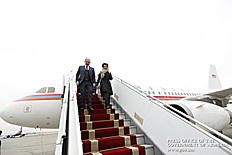 1670x1113px - 302 Kb
1670x1113px - 302 Kb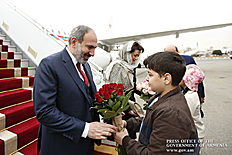 1670x1113px - 510 Kb
1670x1113px - 510 Kb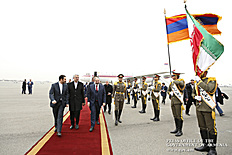 1670x1113px - 527 Kb
1670x1113px - 527 Kb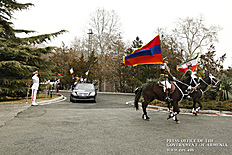 1670x1113px - 913 Kb
1670x1113px - 913 Kb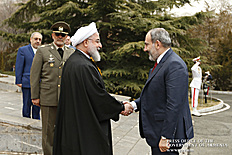 1670x1113px - 562 Kb
1670x1113px - 562 Kb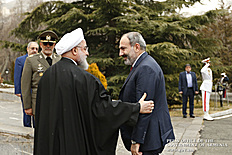 1670x1113px - 554 Kb
1670x1113px - 554 Kb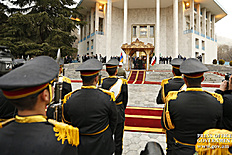 1670x1113px - 678 Kb
1670x1113px - 678 Kb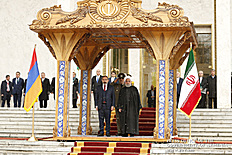 1670x1113px - 953 Kb
1670x1113px - 953 Kb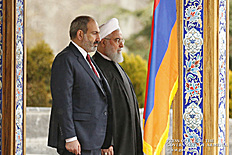 1670x1113px - 709 Kb
1670x1113px - 709 Kb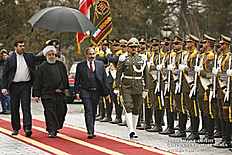 1670x1113px - 908 Kb
1670x1113px - 908 Kb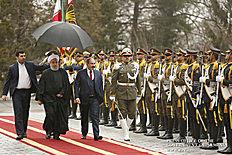 1670x1113px - 943 Kb
1670x1113px - 943 Kb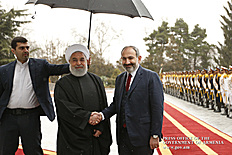 1670x1113px - 583 Kb
1670x1113px - 583 Kb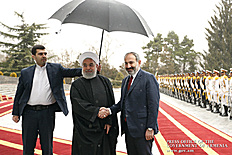 1670x1113px - 648 Kb
1670x1113px - 648 Kb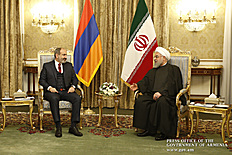 1670x1113px - 897 Kb
1670x1113px - 897 Kb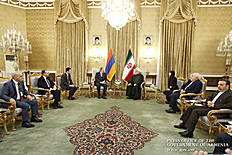 1670x1113px - 1004 Kb
1670x1113px - 1004 Kb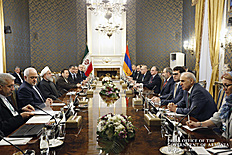 1670x1113px - 957 Kb
1670x1113px - 957 Kb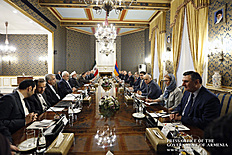 1670x1113px - 1 Mb
1670x1113px - 1 Mb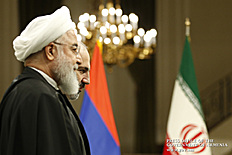 1670x1113px - 461 Kb
1670x1113px - 461 Kb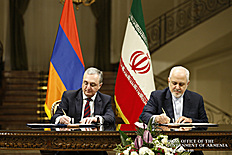 1670x1113px - 600 Kb
1670x1113px - 600 Kb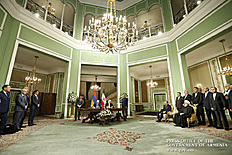 1670x1113px - 919 Kb
1670x1113px - 919 Kb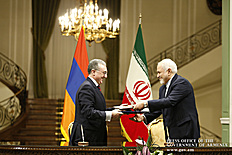 1670x1113px - 599 Kb
1670x1113px - 599 Kb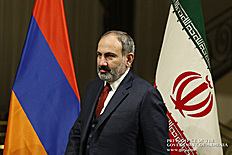 1670x1113px - 487 Kb
1670x1113px - 487 Kb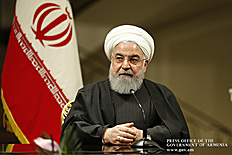 1670x1113px - 536 Kb
1670x1113px - 536 Kb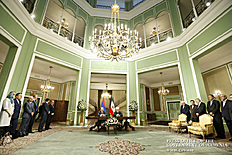 1670x1113px - 715 Kb
1670x1113px - 715 Kb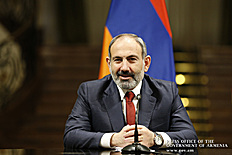 1670x1113px - 498 Kb
1670x1113px - 498 Kb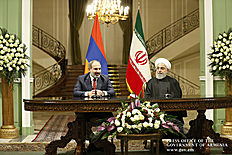 1670x1113px - 841 Kb
1670x1113px - 841 Kb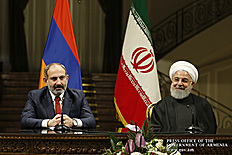 1670x1113px - 533 Kb
1670x1113px - 533 Kb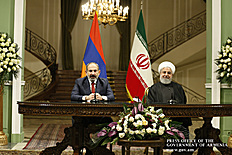 1670x1113px - 671 Kb
1670x1113px - 671 Kb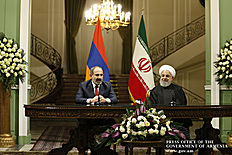 1670x1113px - 642 Kb
1670x1113px - 642 Kb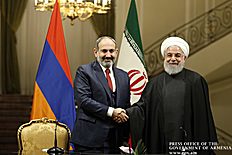 1670x1113px - 534 Kb
1670x1113px - 534 Kb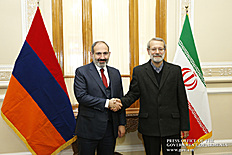 1670x1113px - 581 Kb
1670x1113px - 581 Kb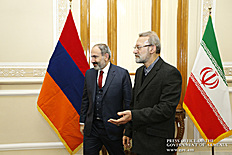 1670x1113px - 573 Kb
1670x1113px - 573 Kb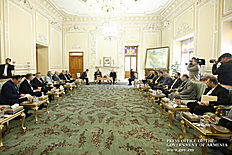 1670x1113px - 984 Kb
1670x1113px - 984 Kb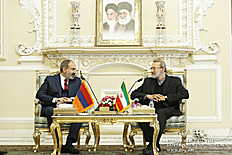 1670x1113px - 753 Kb
1670x1113px - 753 Kb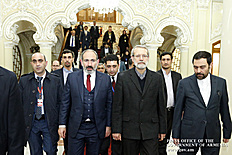 1670x1113px - 655 Kb
1670x1113px - 655 Kb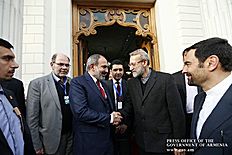 1670x1113px - 444 Kb
1670x1113px - 444 Kb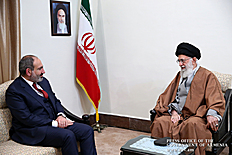 1670x1113px - 2 Mb
1670x1113px - 2 Mb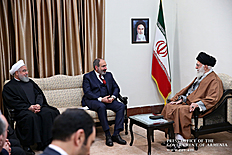 1670x1113px - 2 Mb
1670x1113px - 2 Mb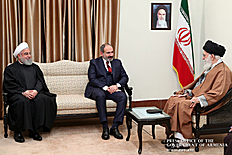 1670x1113px - 2 Mb
1670x1113px - 2 Mb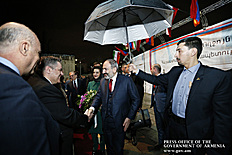 1670x1113px - 629 Kb
1670x1113px - 629 Kb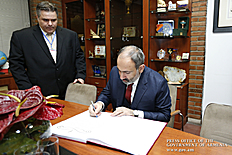 1670x1113px - 2 Mb
1670x1113px - 2 Mb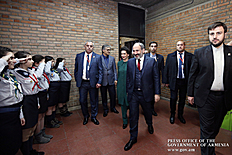 1670x1113px - 2 Mb
1670x1113px - 2 Mb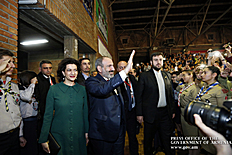 1670x1113px - 1 Mb
1670x1113px - 1 Mb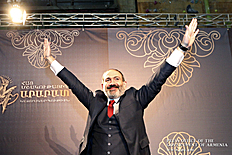 1670x1113px - 2 Mb
1670x1113px - 2 Mb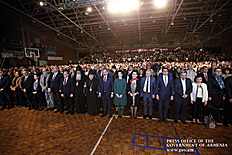 1670x1113px - 868 Kb
1670x1113px - 868 Kb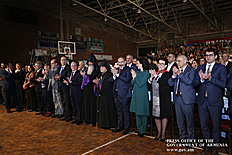 1670x1113px - 760 Kb
1670x1113px - 760 Kb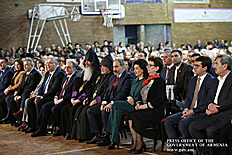 1670x1113px - 824 Kb
1670x1113px - 824 Kb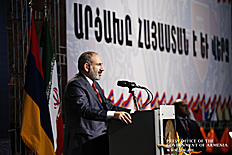 1670x1113px - 563 Kb
1670x1113px - 563 Kb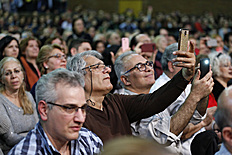 1670x1113px - 629 Kb
1670x1113px - 629 Kb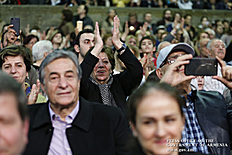 1670x1113px - 587 Kb
1670x1113px - 587 Kb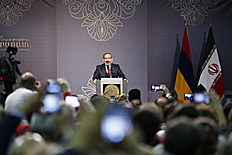 1670x1113px - 582 Kb
1670x1113px - 582 Kb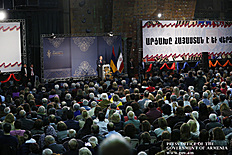 1670x1113px - 806 Kb
1670x1113px - 806 Kb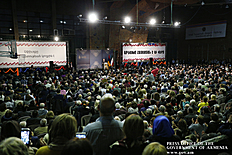 1670x1113px - 2 Mb
1670x1113px - 2 Mb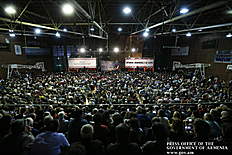 1670x1113px - 2 Mb
1670x1113px - 2 Mb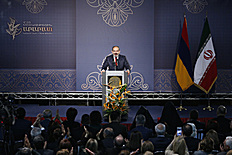 1670x1113px - 632 Kb
1670x1113px - 632 Kb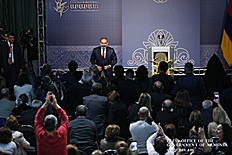 1670x1113px - 659 Kb
1670x1113px - 659 Kb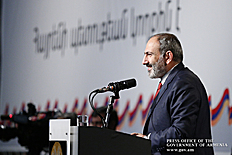 1670x1113px - 2 Mb
1670x1113px - 2 Mb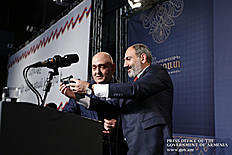 1670x1113px - 537 Kb
1670x1113px - 537 Kb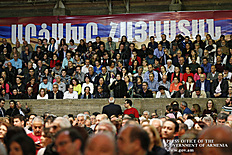 1670x1113px - 952 Kb
1670x1113px - 952 Kb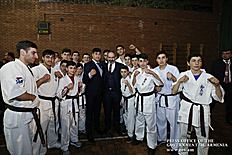 1670x1113px - 2 Mb
1670x1113px - 2 Mb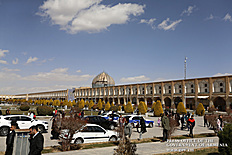 1670x1113px - 556 Kb
1670x1113px - 556 Kb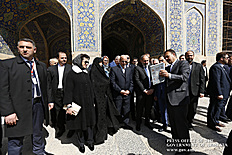 1670x1113px - 904 Kb
1670x1113px - 904 Kb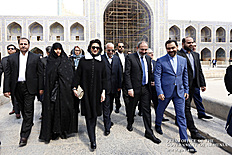 1670x1113px - 730 Kb
1670x1113px - 730 Kb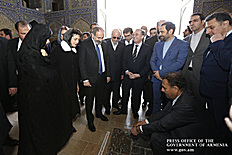 1670x1113px - 557 Kb
1670x1113px - 557 Kb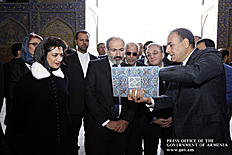 1670x1113px - 497 Kb
1670x1113px - 497 Kb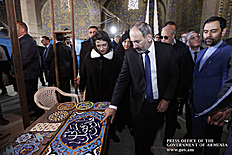 1670x1113px - 721 Kb
1670x1113px - 721 Kb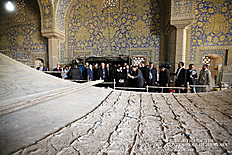 1670x1113px - 1 Mb
1670x1113px - 1 Mb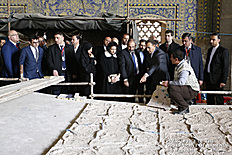 1670x1113px - 872 Kb
1670x1113px - 872 Kb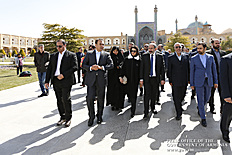 1670x1113px - 642 Kb
1670x1113px - 642 Kb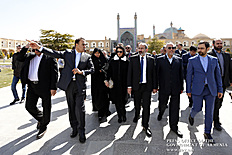 1670x1113px - 583 Kb
1670x1113px - 583 Kb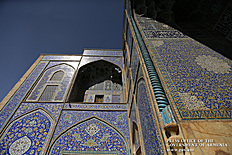 1670x1113px - 1 Mb
1670x1113px - 1 Mb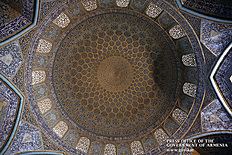 1670x1113px - 2 Mb
1670x1113px - 2 Mb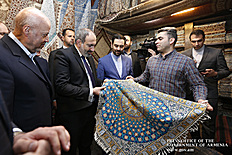 1670x1113px - 1 Mb
1670x1113px - 1 Mb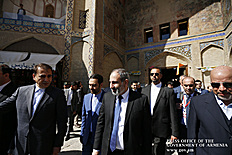 1670x1113px - 612 Kb
1670x1113px - 612 Kb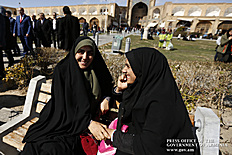 1670x1113px - 552 Kb
1670x1113px - 552 Kb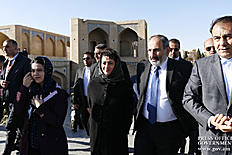 1670x1113px - 458 Kb
1670x1113px - 458 Kb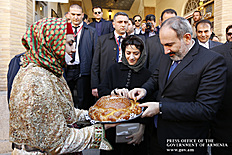 1670x1113px - 749 Kb
1670x1113px - 749 Kb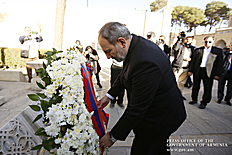 1670x1113px - 548 Kb
1670x1113px - 548 Kb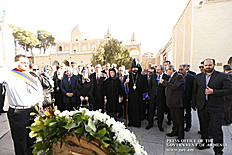 1670x1113px - 559 Kb
1670x1113px - 559 Kb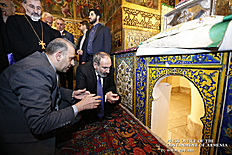 1670x1113px - 1000 Kb
1670x1113px - 1000 Kb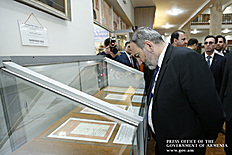 1670x1113px - 521 Kb
1670x1113px - 521 Kb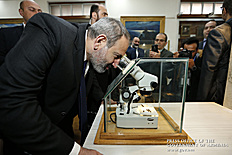 1670x1113px - 522 Kb
1670x1113px - 522 Kb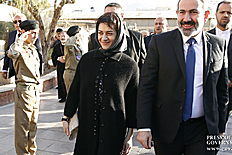 1670x1113px - 590 Kb
1670x1113px - 590 Kb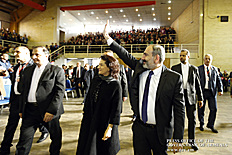 1670x1113px - 576 Kb
1670x1113px - 576 Kb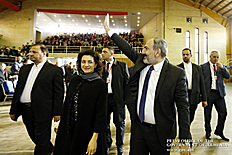 1670x1113px - 597 Kb
1670x1113px - 597 Kb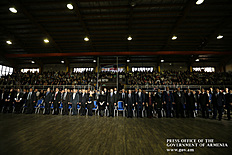 1670x1113px - 566 Kb
1670x1113px - 566 Kb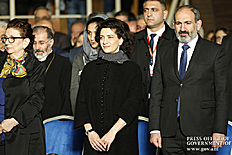 1670x1113px - 544 Kb
1670x1113px - 544 Kb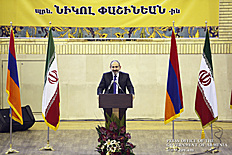 1670x1113px - 738 Kb
1670x1113px - 738 Kb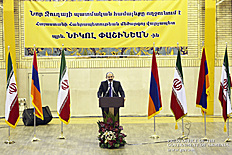 1670x1113px - 794 Kb
1670x1113px - 794 Kb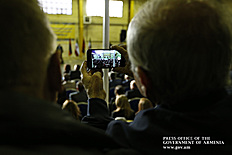 1670x1113px - 348 Kb
1670x1113px - 348 Kb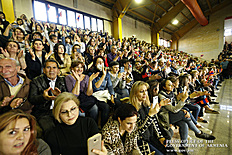 1670x1113px - 988 Kb
1670x1113px - 988 Kb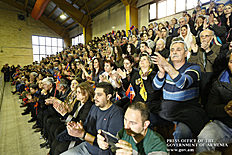 1670x1113px - 869 Kb
1670x1113px - 869 Kb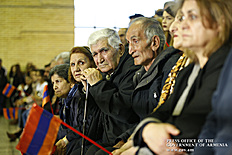 1670x1113px - 524 Kb
1670x1113px - 524 Kb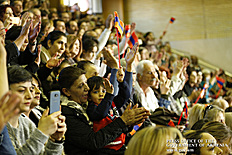 1670x1113px - 660 Kb
1670x1113px - 660 Kb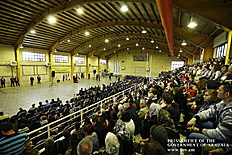 1670x1113px - 1001 Kb
1670x1113px - 1001 Kb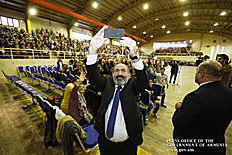 1670x1113px - 752 Kb
1670x1113px - 752 Kb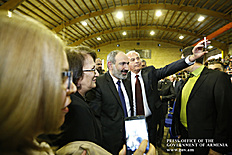 1670x1113px - 605 Kb
1670x1113px - 605 Kb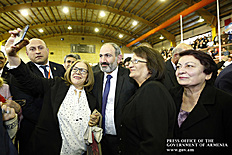 1670x1113px - 686 Kb
1670x1113px - 686 Kb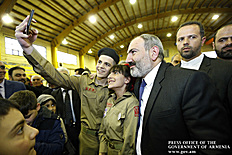 1670x1113px - 668 Kb
1670x1113px - 668 Kb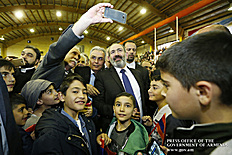 1670x1113px - 751 Kb
1670x1113px - 751 Kb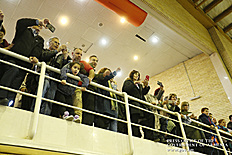 1670x1113px - 868 Kb
1670x1113px - 868 Kb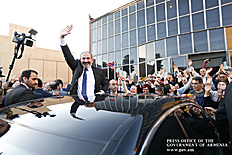 1670x1113px - 559 Kb
1670x1113px - 559 Kb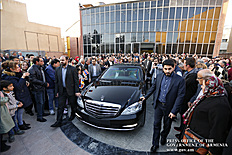 1670x1113px - 837 Kb
1670x1113px - 837 Kb
more 100 photos
Accompanied by his spouse Anna Hakobyan and a governmental delegation, Prime Minister Nikol Pashinyan has arrived in Iran on an official visit at the invitation of IRI President Hassan Rouhani.
The RA Prime Minister-led delegation left Tehran’s Mehrabad Airport for the Royal Saadabad Palace, where an official welcoming ceremony took place.
After the official national anthems of the two countries had been played, Nikol Pashinyan and Hassan Rouhani welcomed the members of the two delegations and started their high-level talks.
* * *
Today, Armenia Prime Minister Nikol Pashinyan and Iranian President Hassan Rouhani met at the Royal Saadabad Palace in Tehran. The narrow-format meeting was followed by extended talks.
Hassan Rouhani thanked the Prime Minister for accepting his invitation to visit Iran. “I welcome you to Iran. I wish to felicitate you for those changes that occurred in Armenia through the democratic way. Our deeply-rooted relations have always been friendly, and we want them to be strengthened and developed ahead. Iran wants to have continued good relations with its neighbors, in particular with Armenia. I am convinced that your visit to Iran will contribute to the further strengthening of bilateral political, economic and humanitarian relations.”
Prime Minister Pushinyan thanked President Rouhani for the invitation and a warm welcome: “Iran is close to our country not only in geographical terms, but also in terms of friendly ties, and we have had many occasions to emphasize their importance. Fundamental transformations are taking place in Armenia, which are of internal character and no external power has been involved therein. This is a fundamental point in understanding the essence of the process. I am convinced that new opportunities have emerged in our relations, and we have the necessary political will to implement them,” Nikol Pashinyan noted.
Nikol Pashinyan noted that this is his third visit to Iran: he first visited the country as a journalist, then as an MP, and now as the Prime Minister of Armenia. The Head of Government made a point of the warm attitude enjoyed by the Armenian community in Iran. “It reinforces our friendly attitude towards Iran. We discussed important issues during our private talks, and I hope that during this visit we will be able to find solutions to some of those issues,” the Premier said.
Hassan Rouhani expressed conviction that the two sides’ political will is sufficient for the Armenian-Iranian relations to be strengthened ahead. The interlocutors expressed confidence that Armenia and Iran will not only maintain the current pace of high-level relations, which are based on mutual trust, but will be able to expand them ahead.
In this regard, the Armenian Prime Minister and the Iranian President singled out the construction of the third 400-kV Iran-Armenia power transmission line, which will help the sides increase the amount of electricity and gas exchanged between the two countries by promoting the development of economic relations and regional cooperation in this area. The parties attached importance to the implementation of the Meghri HPP program and agreed to take practical steps in the near future.
The interlocutors agreed that the bilateral trade turnover still falls short of the current high level of political relations. They deemed it necessary to do their utmost in order to boost trade turnover and mutual investments. In this context, Nikol Pashinyan referred to his government’s steps aimed at improving the investment environment.
From the perspective of regional cooperation, the ratification by the respective parliaments of the EAEU-Iran free trade agreement was highlighted on either side. Nikol Pashinyan and Hassan Rouhani expressed conviction that the Agreement will create new opportunities for the furtherance of trade and economic relations between the two countries. They pointed to the expediency of organizing an exhibition-sale of Armenian and Iranian products in Yerevan and Tehran, and holding a business forum after the agreement become effective.
The development of international transport corridors and the Iranian side’s eventual participation in the construction of specific sections of the North-South Road Corridor were considered to be key areas of cooperation between Armenia and Iran.
The leaders of the energy and transport sectors of the two countries gave details on the ongoing discussions on the development of cooperation. Nikol Pashinyan and Hassan Rouhani attached importance to the activities of the Armenian-Iranian intergovernmental commission and agreed to hold the Commission’s next session this summer.
The interlocutors next touched upon the cooperation in the field of agriculture and the possibility of increasing the export of meat products from Armenia. The parties exchanged views on the possibility of expanding cooperation in information technologies, healthcare, including pharmaceuticals, tourism, nature protection and humanitarian spheres.
Stressing that the Armenian-Iranian cooperation promotes regional peace and stability, Nikol Pashinyan said Armenia is highly appreciative of Iran’s balanced position on the settlement of the Nagorno-Karabakh conflict.
Nikol Pashinyan and Hassan Rouhani agreed that a comprehensive and lasting conflict settlement is only possible through peaceful means as brokered by the only internationally recognized entity - the OSCE Minsk Group. The parties availed themselves of the opportunity to exchange views on other regional issues as well.
At the end of the meeting, the leaders of the two countries instructed the relevant government officials to continue holding active discussions in the run-up to the forthcoming intergovernmental commission meeting in a bid to translate them into specific agreements.
* * *
Prime Minister of the Republic of Armenia Nikol Pashinyan and President of the Islamic Republic of Iran Hassan Rouhani made statements for mass media representatives after their meeting.
President of the Islamic Republic of Iran Hassan Rouhani: “I welcome Mr. Pashinyan and his delegation. During the meeting, we reached satisfactory agreements in different directions. We have been witnessing friendly relations between our two countries since Armenia’s independence and we hope that we will witness the development of these relations during the new government’s activity. We had talks on bilateral, regional and global issues.
At the meeting with Mr. Prime Minister, we were satisfied with Armenia’s stance on unfair sanctions against Iran. Our two countries have the goal of abiding by our national interests and not allowing any third country to interfere with those activities and cooperation. Very good ties of cooperation have been established between our two countries: high-level political, cultural relations, cooperation in education, tourism and other spheres. We want cooperation in other areas to be high as well.
In terms of economic cooperation, there is great potential that should be used better. A large-scale project for gas is being implemented in the sphere of energy. We also paid attention to issues related to Meghri HPP operations.
Another issue in our focus is the North-South Highway Project. The Iranian side expressed readiness to participate in the program. We seek to facilitate the transportation system, particularly in the area of truck traffic.
We also touched upon agriculture. The Iranian side expressed readiness to cooperate in this sphere, develop slaughterhouse activities in Armenia and promote cooperation in cattle breeding.
The other topic of discussion was the IT sector. Taking into account the good cooperation between us, we express our readiness to develop these ties.
We next considered the possibility of trilateral cooperation in the field of energy between Iran, Armenia and Georgia, as well as in a four-party format – involving Russia.
As to cooperation in the field of gas supply, we expressed the Iranian side’s readiness to step up supplies. We are likewise prepared to launch tripartite cooperation to export gas to Georgia.
The other topic was linking the Persian Gulf with the Black Sea to Armenia. As a final word, I must note that the most important point is that there is mutual desire, potential and political will in both countries to develop relations.
We instructed the responsible parties to discuss all issues prior to the intergovernmental commission’s sitting.
Prime Minister of the Republic of Armenia Nikol Pashinyan: “Thank you, Mr. President. First of all, I would like to thank you for your warm welcome. From the first minutes of the visit, we feel and know that we have come to a friendly country and hope that our Iranian counterparts have the feeling of hosting a representative delegation from a friendly country.
Our delegation features not only representatives from the executive branch, but also all political forces represented in the parliament, which evidences the importance attached by our country’s political forces to Armenian-Iranian relations.
The special character of our relationship is also highlighted by the presence of the active Armenian community in Iran and I want to once again thank the Iranian government for their kind attitude towards our compatriots. In short, the weather is very good in our relationships.
President Rouhani presented the range of issues we have discussed. I would like to add one or two points.
As a country chairing the EAEU, it is important for us that the EAEU-Iran free trade agreement be ratified as soon as possible by the respective parliaments. Apparently, it will come into effect during our presidency. This will open up new opportunities for our trade and business circles. And we should encourage our business communities to take advantage of those opportunities.
Our cooperation in the energy sector is extremely important. The President noted that Iran is willing to increase the volume of gas supplied to Armenia. Here, of course, it is important to be able to come to a general agreement about the price during further discussions and negotiations. This is a key issue in terms of economic attractiveness. And we hope that our representatives will conduct effective talks in this direction.
In general, we were able to make an important statement during the talks, namely that the bilateral relations should be viewed in a wider context, and we should implement projects of regional significance.
Armenia is ready to cooperate with Iran and become a transit country for Iranian gas. The establishment of an energy corridor is also of great importance both in terms of bilateral and regional dimensions and in broader terms. There is political will to resolve these issues, and we hope that the ongoing negotiations will be successful.
The discussions give us good grounds to state that our visit was successful and we can note that we must proceed from the logic of strengthening our friendly relations and their atmosphere.
Mr. Rouhani, let me once again thank you for the warm welcome and wish the representatives of our governments every success in implementing our agreements.
Thank you.”
* * *
Memoranda of understanding on cooperation between the two countries were signed in the presence of Prime Minister Nikol Pashinyan and President Hassan Rouhani.
In particular, a Memorandum of Understanding was signed between the Ministry of Economic Development and Investments of Armenia and the Institute of Iranian Standards and Industrial Research.
The second memorandum was signed between the Armenian Ministry of Economic Development and Investments and the Supreme Council for Free Trade, Industrial and Special Economic Zones of Iran.
The documents were signed by Armenian Foreign Minister Zohrab Mnatsakanyan and Iranian Foreign Minister Mohammad Javad Zarif.
* * *
Prime Minister Nikol Pashinyan, who is in Tehran on a working visit met with Majlis Speaker Ali Larijani. Welcoming Nikol Pashinyan’s delegation to Iran, Mr. Larijani expressed confidence that it would promote the furtherance of political and economic relations between the two countries.
Thankful for the warm welcome, Nikol Pashinyan said he kept warm memories of his latest visit to Majlis as part of the Armenian parliamentary delegation.
The parties hailed the current status of bilateral friendly relations, which continue to develop in an atmosphere of mutual understanding. They stressed the need for strengthening economic cooperation and expanding ties between the two parliaments. In this regard, both sides highlighted the furtherance of contacts and mutual visits between parliamentary friendship groups and committees, noting that the legislatures’ cooperation might help strengthen Armenian-Iranian relations.
Pleased with the outcome of his meeting with President Hassan Rouhani, Nikol Pashinyan stressed that the Armenian side is keen to implement the agreements reached at the meeting, specifically with regard to the economic sphere, which may add momentum to bilateral relations.
In turn, Ali Larijani emphasized that the Iranian parliament favors the expansion of interstate relations. He pointed out that there are great opportunities for developing cooperation in both bilateral and multilateral formats. In this context, the importance of the EAEU-Iran free trade agreement and its ratification was emphasized on both sides. The parties attached importance to the promotion of cooperation in tourism and culture.
Issues related to regional affairs were discussed during the meeting.
* * *
Supreme Leader of the Islamic Revolution Ayatollah Seyed Ali Khamenei today received Prime Minister Nikol Pashinyan who is paying an official visit to Iran.
Welcoming the Prime Minister of the Republic of Armenia, Ayatollah Seyed Ali Khamenei said he was informed about the outcome of Nikol Pashinyan’s talks with President Hassan Rouhani. Ayatollah Ali Khamenei expressed his support for the development of Armenian-Iranian multifaceted cooperation and the projected steps planned in this direction. He emphasized the need for expanding and developing Armenian-Iranian economic cooperation.
Thankful for the reception, Nikol Pashinyan underscored that Armenia is interested in the steadfast development and expansion of relations with friendly Iran.
During the meeting held in a warm atmosphere, Prime Minister Pashinyan touched upon the political developments and the people’s revolution in Armenia.
The Supreme Leader of the Islamic Revolution noted that he had closely followed the peaceful and democratic processes underway in Armenia.
During the meeting, the parties referred to regional issues. Nikol Pashinyan and Ayatollah Seyed Ali Khamenei agreed that a comprehensive and lasting settlement of the Nagorno-Karabakh conflict can only be achieved through peaceful means.
* * *
At the end of the first day of his official visit to Iran, accompanied by Mrs. Anna Hakobyan and the members of his delegation, Prime Minister Nikol Pashinyan met with the local Armenian community representatives. The meeting took place at Tehran’s Ararat Sports and Cultural Association. Thousands of Iranian-Armenians attended the meeting. They welcomed the Prime Minister with enthusiasm, warmth and applause.
Prior to addressing the audience, Nikol Pashinyan signed the Book of Honorary Guests at Ararat Sport-Cultural Union. Welcoming the representatives of the Iranian-Armenian community, Nikol Pashinyan stated, in part: “Proud citizens of proud Armenians in Iran, I welcome all of you. It is a great honor for me to be here and enjoy a purely Armenian and homely atmosphere. I want to say that I love all of you, I am proud of you all, I am proud of your spirit, I bow to all of you living far from your homeland in the friendly and brotherly Iran; it is very important that you can provide such an atmosphere. This proves that being a citizen of Iran is not at odds with one’s being Armenian, being from Armenia and focused on Armenia.
Of course, during the revolutionary days of April-May, I had no chance to follow what was happening in our communities, in particular in the Iranian-Armenian community, but I also know that the whole community was closely following the development in the Homeland.
Dear compatriots, I will not hesitate to say that you were full participants of the popular revolution that took place in the Republic of Armenia. No matter who was physically present in Armenia: the changes would not have happened without your support.
Yes, each one of you participated in the non-violent, velvet popular revolution in Armenia with your love and attention, and the triumph of our popular revolution was the personal victory of each of you because it brought unity to the Armenian people; unity that will never be impaired in any way.
I want to make a clear record. Yes, there may be discussions, debates, different approaches and views on issues related to the Diaspora in Armenia, but I want to set a task before us, first and foremost before me and our government: we must rule out any such action as may cast doubt on the unprecedented national unity that the Armenian people enjoy today in Armenia, in Iran and in the Diaspora. That unity is out of any political and party interests, our national unity is exalted above all, and we all serve that national unity.
I cannot help addressing words of respect and appreciation to Ararat Club, which has been able to create such an exclusive Armenian hearth through individual efforts, the efforts of individual groups and the efforts of individual parties. This is truly our common pride: thanks to the beloved participants and organizers of Ararat Club. I would like to emphasize that this service is unique not only for the Armenian community of Iran, but also for Armenians and the Republic of Armenia.
I also want to emphasize the exceptional service provided by the Iranian Diocese of the Armenian Apostolic Church, the Armenian Catholic Church, and the Armenian Evangelical Church in the Iranian-Armenian community here.
The fact that all of us are here under the same roof, emphasizes that a truly new chapter has been opened in the history of our people, and each of us has a share to take by writing and creating that part of our history.
The greatest mission of our revolution and the government is that each of us, each one of you, as a whole, not only believes in the future of our homeland, our nation, but also is confident that we will be victorious in the 21st century. This is a new nationwide march with which we should open a new page in our nation’s history. We can record your loyalty to the values that led to the non-violent, velvet popular revolution.
We no longer have separate agendas for Armenia and the Diaspora: we have a national agenda aimed at achieving national goals. I have repeatedly stated that while suffering, our people have always dreamed, we have dreamed of new victories, new happiness and new unity.
I want to say that the time has come to materialize our long-cherished dreams, and your presence here testifies to the fact that we are united on the way to implementing our aspirations, whether it be Armenia’s economic empowerment, the enforcement of Artsakh people’s legitimate demand, or the realization of our dreams. We must build our future with our own hands.
Our destiny is no longer in the East, in the North and in the South, but in our hands, and as dignified citizens, we must grasp the fate of our destiny, and as a state, we must head for ever new victories. But I also want to emphasize that the realization of these dreams depends on each one, especially on me and my government.
You have fulfilled your duty today because I got so much energy from the meeting that once back to Armenia, I will endeavor with doubled, tripled, fourfold energy. I would like to thank you for such a meeting and atmosphere.
Long live freedom! Long live the Republic of Armenia! Long live the Armenian-Iranian friendship! Long live our children and we as we are living and will live as dignified and victorious sons of a free, proud and dignified people. Thank you.”
In conclusion, Prime Minister Pashinyan answered a number of questions concerning the strengthening of Armenia-Diaspora relations, the results of today’s talks, his government’s priorities, the Nagorno-Karabakh conflict settlement, the Armenian-Turkish relations and other topics.
Nikol Pashinyan referred to the settlement of the Nagorno-Karabakh conflict, the transcript of which is presented below:
Question - Mr. Prime Minister, dear Nikol Pashinyan, you are welcome to our community. First of all, what can you say about Armenia-Turkey relations, which are too little referred to in your speeches? Secondly, I would like to know whether the latest meetings between Mnatsakanyan and Mammadyarov, which have been widely reported in news agencies, were mere exchange of good greetings and words to that effect, or are there any arrangements that you can tell us now?
Prime Minister Nikol Pashinyan - I do not know why you did not mention my meetings with Aliyev. I have already said in public everything about the scope of those meetings. I only want to ask you, looking all straight in your eyes: some people today are trying to give the impression that we have come to power with the people’s mandate in a bid to act against our homeland and our nation. Where is the logic here?
As to specific agreements, an arrangement is out that we should consider the possibility of a peaceful settlement of the issue. Do I see such opportunities today and can state some progress in the negotiations? Unfortunately, I cannot say such a thing because, as you may know, such a conversation took place recently when international representatives asked us if we were ready for compromise.
I simply told them that Armenia is not the first respondent to answer this question. Who has ever asked Azerbaijan whether they are ready for compromises? We will not answer that question until Azerbaijan has answered it clearly. Now we can state why Azerbaijan should first answer that question, just because Azerbaijan undermines the peace process on a daily basis by threatening us with war. And I say that mistaken are those who believe to be able to resolve the conflict by means of threats. They do not realize that they will have to deal not only with the citizens of the Republic of Armenia but also with all Armenians worldwide who are united today more than ever. In case of any threat to Karabakh, that unity will double, triple, will be tenfold and will become a much stronger force than today. Let no one have any doubts whatsoever.
Regarding the Armenian-Turkish relations, unfortunately, the Turkish authorities’ position prevent us from talking seriously about this issue because Turkey keeps associating our bilateral relations with the Karabakh conflict, i.e. Armenia-Karabakh-Azerbaijan relations. And therefore, unfortunately, we cannot have grounds for optimism, though we said and say that we are ready to discuss establishment of relations without preconditions. But this means that neither Turkey should set forth any preconditions. In this context, I want to state that the issue of international recognition of the Armenian Genocide is of utmost importance to us.
But now a question may arise: You say that you are ready for establishing relations without preconditions, but in the meantime, you are blaming Turkey for the Armenian Genocide? Does not it turn out that this is also a precondition? We say very clearly that the issue of the international recognition of the Genocide is not a matter of bilateral relations between Armenia and Turkey, it has to do with the international campaign against genocides and the global security agenda, and by persisting in our drive for international recognition of the Armenian Genocide we are making our contribution to the global security and global struggle against genocides. So, we will continue to pursue the recognition of the Armenian Genocide and we will pursue the recognition of Artsakh’s right to self-determination.
I want to say that our government has set itself a priority task to upgrade Nagorno-Karabakh’s status in the negotiation process. I am going to meet with the President of Azerbaijan. It will be a meeting without agenda, but one of its key milestones is the discussion of the format of the talks, which means that these discussions cannot be considered formal talks until we reach agreement on this format, because as I have already said, I cannot negotiate on behalf of Karabakh since I am the Prime Minister of the Republic of Armenia. I cannot represent the Republic of Artsakh as they have their own authorities - president, government – who should speak and act on behalf of the people of Artsakh in the negotiation process. This is very important, and we have to do everything in order to enhance Karabakh’s status in the negotiation process.
* * *
Prime Minister Nikol Pashinyan continues his official visit to the Islamic Republic of Iran. Early on February 28, the Premier, his spouse Anna Hakobyan and the Armenian government delegation left Tehran for Isfahan.
Accompanied by Isfahan Governor Abbas Rezaei, Nikol Pashinian went to Nakhsh-E Jahan Sqaure, the central square of the city where many spiritual and cultural facilities are located.
Nikol Pashinyan and Anna Hakobyan visited Imam and Sheikh Lothollah mosques, Ali Qapu Palace and Kesariyeh Bazari. During the tour, they were briefed on the history of Iranian spiritual and cultural institutions.
During the working dinner hosted by Abbas Rezaei, Nikol Pashinyan stressed the importance of cooperation between Iranian provinces and Armenian regions, which can be promoted by mutual visits, friendly contacts and practical steps.
The Governor of Isfahan thanked the Armenian Prime Minister for visiting his province and praised the Armenian community for the role played in the development of Isfahan.
In the second half of the day, Prime Minister Pashinyan is scheduled to meet with representatives of the Armenian community in Isfahan.
* * *
Prime Minister Nikol Pashinyan and Mrs. Anna Hakobyan visited the St. Amenaprkich Monastic complex in Isfahan, where they met with Primate of the Armenian Diocese of Isfahan, Bishop Sipan Kechejian.
As they toured the monastic complex, the Prime Minister and his spouse visited the local museum to get acquainted with the latter’s history. Then, Nikol Pashinyan and his delegation called at Ararat Club in Isfahan and met with thousands of representatives of the local Armenian community. The latter welcomed Prime Minister Pashinyan with warmth and heated applause.
Addressing those present, Nikol Pashinyan stated, in part: “Because the word “proud” was talked about here, I think it has experienced some meaningful change. Yes, the Bible says that pride is a sin, but I think arrogance is meant there. Pride in modern language is used to describe people with strong legs, a solid backbone, working hands. Proud citizens, proud Armenians of New Julfa, I greet you.
Indeed, this is a historical hub for Armenians, and due to political and geopolitical circumstances, a large part of the population of the First Republic of Armenia settled in Isfahan and established New Jugha. Actually, yes, people turned away from Armenia, but New Jugha became a true home for the Armenian people's cultural revival. Indeed, these were geopolitically bad times, and after migration, the territory of the Republic of Armenia was in a difficult situation; it was subject to continued wars, and New Jugha became the place where the Armenian people developed their culture.
The St. Amenaprkich Monastery is one of the most exclusive churches in which a unique pattern of Armenian frescoes is preserved. It is supposed that we have had similar masterpieces in Eastern and Western Armenia, but time has been ruthless about cultural heritage. I want to thank you for preserving these priceless treasures of Armenian culture for our people, this is a part of our identity, pride and greatness of the greatness. Thank you for keeping the Armenian identity and the Armenian dream to return to Armenia.
I also want to thank you for being so Armenian and Armenian that you have been able to become full-fledged citizens of the Islamic Republic of Iran, who have served the empowerment and prosperity of this friendly nation. Thank you for being full-fledged, dignified and proud citizens of Iran. The fact that Armenian delegations enjoy a top-level welcome here is the result of your selfless service to friendly relations.
As far as history is concerned, I want to emphasize that it is really important to us. I am glad to see the atmosphere in New Jugha, Tehran, Paris, Cologne, the exclusive national unity that we have after the non-violent, velvet, popular revolution in the Republic of Armenia. I am convinced that you consider this people’s revolution a personal victory, because it is the victory of the people, every son of the Armenian people has invested in that victory.
I would like to thank you for your civic victory because we have made a huge step on the way to implementing our long-cherished dreams. I also want to greet you today as the victorious proud citizens. Today most of you are not citizens of Armenia, but community representatives told me that many of you will be proud citizens of Armenia tomorrow and that is the most important and big dream we have to accomplish.
When speaking about it, first of all I think about history, and that conversation leads to the idea that the mission we have to fulfill is historic literally, not figurative. I have always thought that we, the Armenians have the task of overcoming the historical cycle that has accompanied us from the times of Arshakuni. What do I mean? I mean the continued loss of statehood when we proved deprived of statehood for the most part and for a long time after the fall of the dynasty of Arshakuni. When I think about our collective historical mission, my first thought is to overcome the cycle when we lost statehood, dreamed about it, restored it and lost it again.
Speaking about our historic mission in this historic community, it should be underlined that it is one of the proofs of our own history and its logic. A representative of your community under the new heap of applauds declared that they are dreaming of repatriation and proofreading our history.
You came here when our state was not strong enough to protect our ancestors. I often refer to King Pap because I think about the time when our story went wrong throwing us into an endless circle of disaster. I think King Pap was the one to give us the opportunity to change the status of Armenia and the Armenian people. Something went wrong since then, because at that time we were not so receptive about the historical events, we were united, we did not have a common consciousness.
Our millennial trials have led us to a point where we have grown up as a mighty nation. We have to maintain our identity, unshakable unity and do not pay tribute to foreigners. We must get rid of those politicians in the Republic of Armenia, who are foreign agents rather than citizens of their own country.
We as people will no longer allow condemnation to our statehood, we will not allow anyone to use a coin in its geopolitical games to allow our own brothers to use to destroy, demolish and weaken our state. Because this is the exclusive time of the unity of the Armenian people and we must return to 374 years and not allow the greatest conspiracy against our people.
We will not allow anybody to think that the Republic of Armenia and the Republic of Artsakh can be taken away because we are proud citizens of the Republic of Armenia, proud citizens of the Republic of Artsakh, we are the descendants of Tigran the Great, we are the descendants of King Pap.
The non-violent, velvet, popular revolution in Armenia was carried out under the slogan “We are the masters of our country;” while the revolution in the Armenian people’s historical destiny must come around under the slogan “We are the master of our destiny.” Every one of us, the prime minister, the minister, the deputy or the builder, should realize his exceptional historical role in Armenia and the Diaspora. When I speak about our historical role, I do not mean the historical role of the prime minister, the government, the National Assembly, or any state body, but I speak of every Armenian’s historical role. I want to get your authority to announce that every Armenian is his historical mission and proud to bear his or her historical mission.
The Republic of Armenia, the Republic of Artsakh, must exist on the planet Earth and become even stronger. It no longer comes as a temporary state; we have created it with our own hands, blood and sweat, and we will keep this state with our own blood, sweat, labor and mind because the Armenian nation is a powerful people,
Therefore, long live freedom! Long live the Armenian-Iranian friendship! Long live the Republic of Armenia! Long live our children and we who are living and will live in a free and happy Armenia.”
The official visit of the Prime Minister-led government delegation to the Islamic Republic of Iran is over.